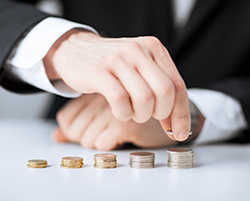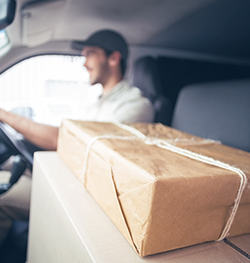Banking
Banking on Campus
There is a bank located inside the CAU campus: a campus branch office of Woori Bank.
- Locationin the sunken garden near the Seoul Campus’ front gate
- Office hoursMonday to Friday, 09:30-16:30
- The bank is located at the heart of the campus and has ATMs (cash machines) all over the campus.
- This bank is recommended for those who will spend most of their time in the CAU campus.
Money Transfer
If you need to have money transferred from your home country, the remitter will need to know the following information. Also, your bank can advise you about your options for sending home or transferring money.
- the name of the bank, and the bank’s swift code
- the account no. of the receiver, and the account owner’s name
- other information (e.g., the contact no. and address of the receiver)
Bank Account
To open an account, you will need your passport and Foreign Registration Card. You will have to provide your local address and to fill out an application form, from where you can choose optional services such as online banking, phone banking, and a message service via your cell phone. Be sure to get your bankbook (tongjang) so you can keep a record of your transactions, and a cash card so you can use the ATM.

Money Exchange
You can exchange money at any bank with your passport. If you are not in a hurry, wait until the exchange rate changes in your favor. The foreign-exchange section of banks displays the daily exchange rate. You generally do not need to pay a commission for exchanging money because the fee is already included in the displayed rate. You may ask the bank how much the fee is.
ATM
For the convenience of the students and faculty, there are ATMs all over the campus. You can withdraw and deposit cash using the cash card issued by your bank. You can also use the same machines to get cash advances using your credit card. The campus ATMs offer services in both English and Korean. ATMs can be found in the administration building, the main library, and many other college buildings. Withdrawing money from your bank's ATM is free during regular business hours (9:30 a.m.-4:30 p.m.), but withdrawing money from another bank's ATM or after business hours will require you to pay a small surcharge (around 1,000 won). There is no surcharge, though, for a withdrawal of only 10,000 won or less. There is a limit of 700,000 won per withdrawal and a 7,000,000 won daily limit. Only 10,000 won bills can be withdrawn from the ATMs.
Through the ATMs, you can also transfer money to another account and make payments to others. A small fee is collected for money transfers to a different bank account or after business hours.
Post Office
- LocationB4 floor, bldg.310 (Centennial Hall)

Mail Costs
For domestic mail, sealed letters weighing below 10 g are charged 480~600 won, with an additional 40~100 won for every 10 g thereafter. In the case of parcels, the charge is 9,000~17,000 won for goods weighing below 500 g, with an additional 7,000~13,000 won, depending on the distance. For international mail, the amount varies depending on the distance. Please note that when sending general international parcels to the U.S. or Canada, you should have the package insured so you can verify if it has been delivered. The basic insurance rate is 1,800 won.
EMS(Express Mail Service)
Through a special agreement between the Korean government and the postal services of other countries, Express Mail Service is available for those who wish to send documents and parcels to overseas destinations.
If you send mail from Seoul at 11:00 a.m., it will take the letters two to three days to reach cities that have direct flights to Seoul, and three to five days for other cities. To use this service, you have to write or print the receiver's name and address as well as the contents and quantity of each item on the free address label supplied at the post office. With regard to documents, there is a 9,500~15,000 won charge for documents weighing below 0.3 kg, with an additional 1,500~3,000 won per 0.5 kg in excess thereof, according to the distance or region where they will be sent.
In the case of merchandise, the charge is 12,800~20,000 won for items weighing below 0.5 kg, with an additional 3,000~10,000 won per 0.5 kg in excess thereof, according to the distance or region where the items will be sent. After sending your mail or parcels using the EMS service, you can check the delivery status at (http://www.koreapost.go.kr/eng/index.do) or (http://service.epost.go.kr)